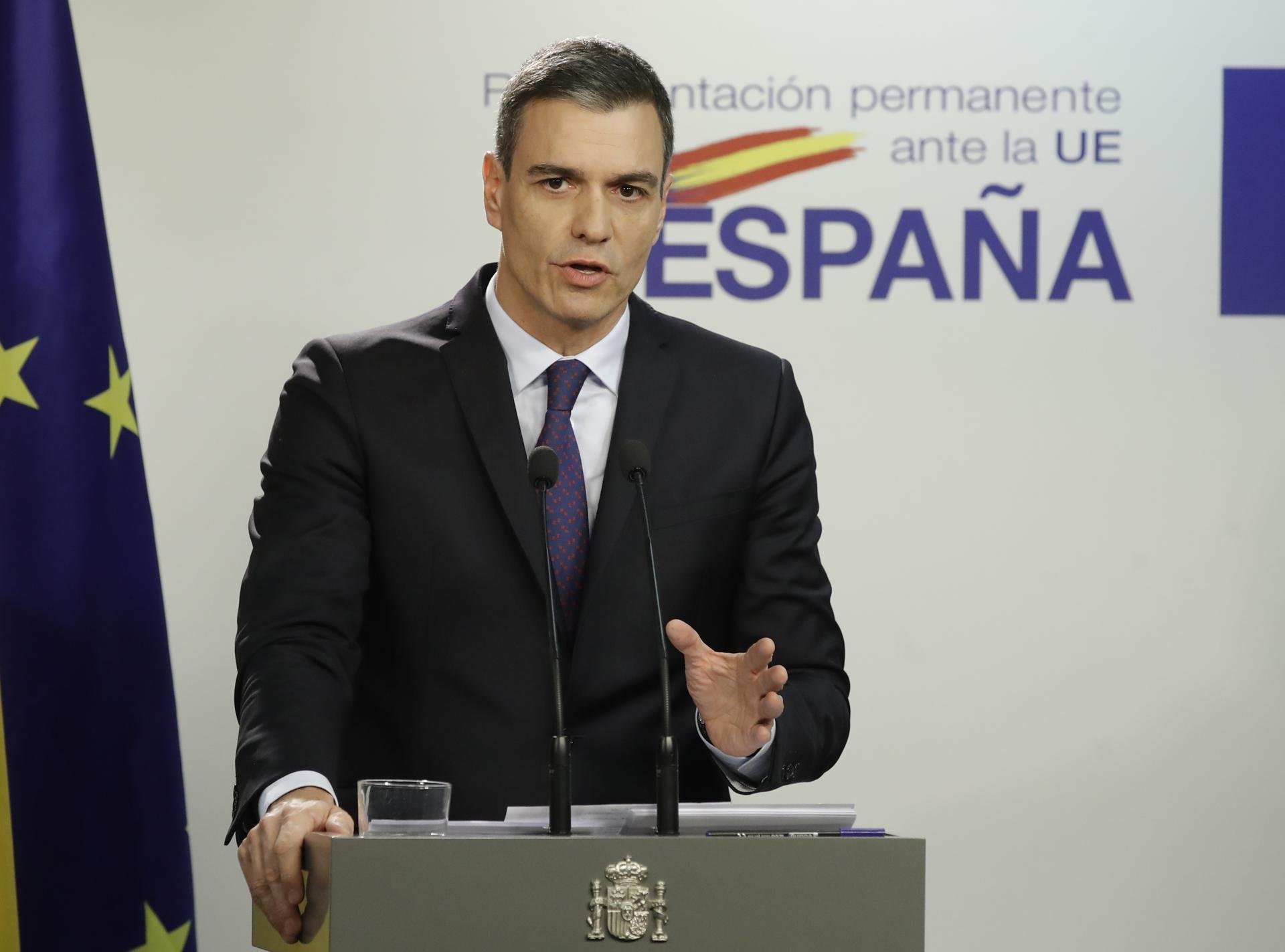The Spanish prime minister, Pedro Sánchez, affirmed this Tuesday that he will stand up to the Constitutional Court by "adopting the precise measures" to reform the judiciary and, in this way, will renew the judicial governing body, the General Council of the Judiciary (CGPJ), as well as the Constitutional Court itself. At the same time, the Socialist (PSOE) leader reiterated in an institutional statement from the Moncloa government palace that his executive will abide by the decision of the conservative majority of the guarantee court, which provoked a grave institutional crisis in Spain on Monday when it voted to paralyze the judicial reform which the coalition government was pushing through.
Sánchez used his short speech on Tuesday morning to put into context the decision taken by his executive to reform the Spanish judiciary. He recalled that the People's Party (PP) is still maintaining its blockade on the renewal of the General Council of the Judiciary, and that this body is also unable to nominate its candidates for the Constitutional Court. "It is an unprecedented situation in our democracy", said Sánchez, referring to the deadlock within the Spanish justice system. Likewise, he was highly critical of the PP for seeking to keep some judges in power without respecting the mandate of the polls, which in 2019 gave victory to the PSOE and Unidas Podemos, and thus should have allowed progressive majorities in the judicial leadership.
Having said that, Sánchez also sent a message of "serenity" to all those Spanish citizens who, in his opinion, feel "indignant" and "concerned". In the same vein, he stated that the Spanish state "is one of the great European democracies" and that is why it has "mechanisms" to overcome situations of this type. It was then that he assured that, although his government's intention is to comply with the Constitutional Court's pronouncement, it will take the necessary measures to renew the membership of this court. "The Spanish government will guarantee respect for the law and the constitutional mandate," said Sánchez.
The appearance of Pedro Sánchez on Tuesday morning followed a more immediate government response on Monday night, when the minister for the prime minister's department, Félix Bolaños, had reacted to the Constitutional Court decision to intervene in the Congress of Deputies and the Senate. In an institutional statement, the minister - also minister with responsibility for relations with the Spanish parliamentary chambers, affirmed that the PSOE-Unidas Podemos executive would maintain its "institutional loyalty", assuring that the decision of the Constitutional Court "must be obeyed".
Bolaños also issued strong criticism of the Constitutional Court in his statement, reiterating that the facts were of "maximum gravity" and that the decision had been taken using an "unusual procedure". "It is not a conflict between parties or between institutions, but between those who want to comply with the Constitution and those who have systematically violated it for four years; many of us have asked ourselves the reasons why the PP wants to paralyze this renewal, we can all imagine those reasons, but what happened today gives a clear new answer to the question."

